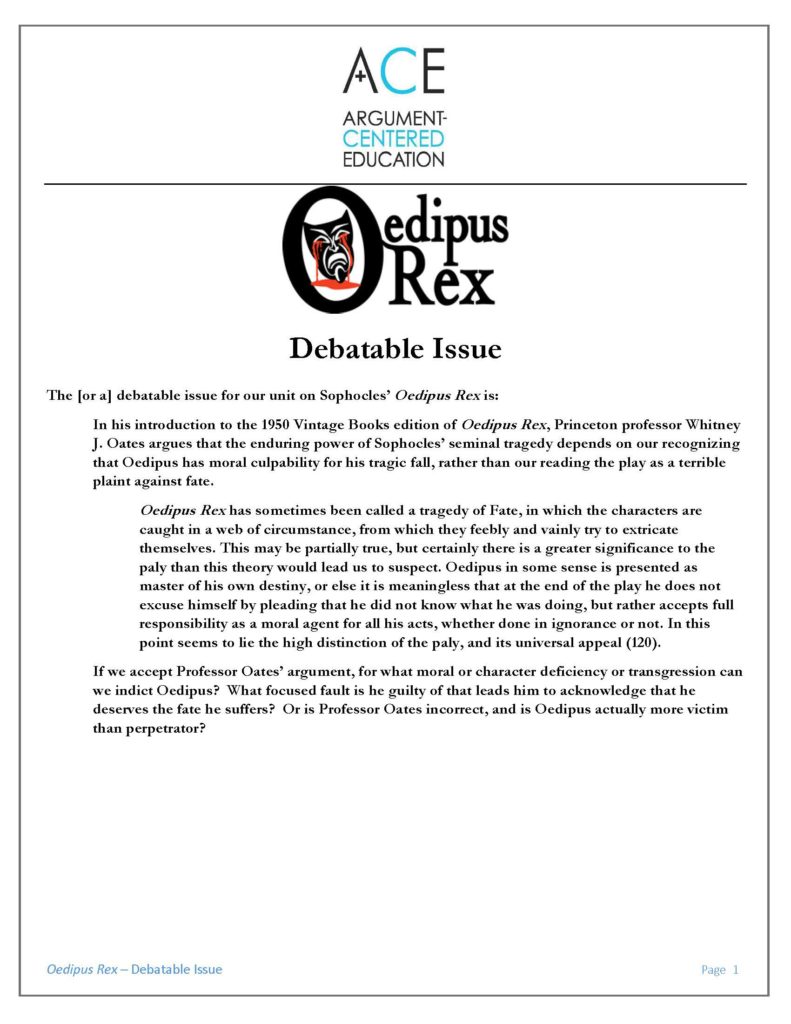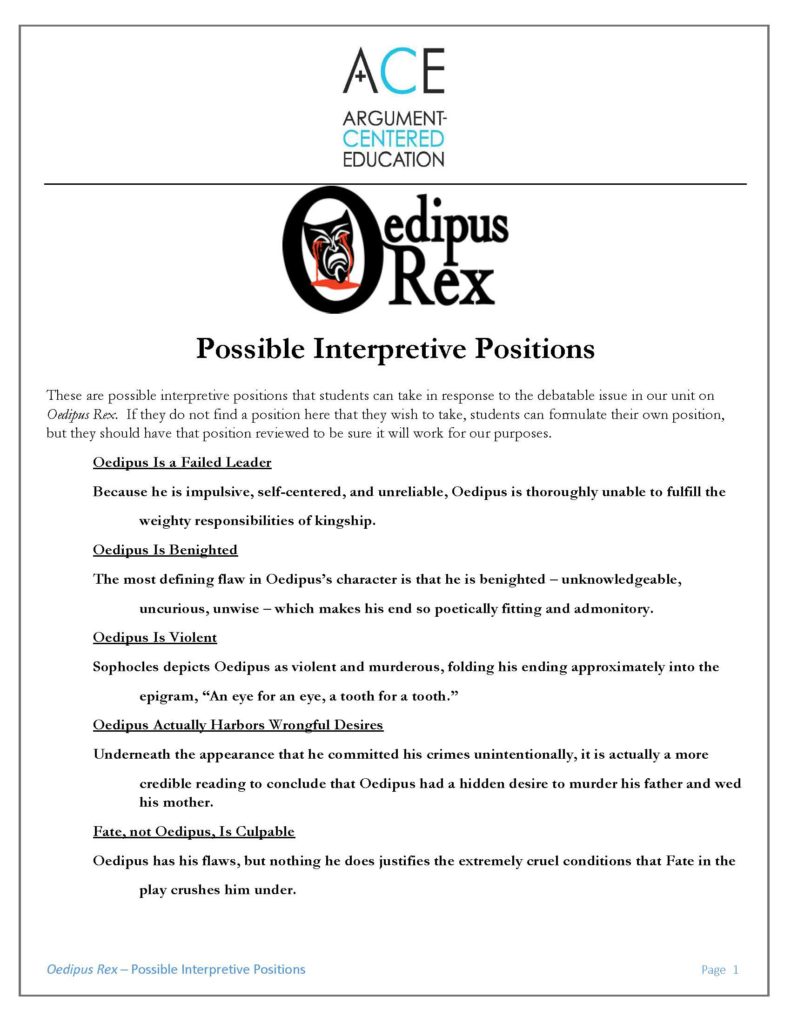
Oedipal Arguments
Sophocles’ Oedipus Rex is arguably where Western literature begins. First performed in 439 BCE, and cited repeatedly in Aristotle’s Poetics for its exemplary features of poetic drama, the play functions in our literary tradition as a kind of ghostly template — certainly over the stage, but over all that can be called tragic narrative too — faintly echoing behind globalized civilization’s literary arts. In light of this status, we’d want to be sure we can argumentalize a unit on Oedipus Rex, right?
Of course. And of course argumentalizing the study of Sophocles’ genre-forging work begins with formulating an arguable question. Which is what I did with a partner high school this past spring.
The foundational debatable issue for the unit we designed on Sophocles’ Oedipus Rex was this one.
In his introduction to the 1950 Vintage Books edition of Oedipus Rex, Princeton professor Whitney J. Oates argues that the enduring power of Sophocles’ seminal tragedy depends on our recognizing that Oedipus has moral culpability for his tragic fall, rather than our reading the play as a terrible plaint against fate.
“Oedipus Rex has sometimes been called a tragedy of Fate, in which the characters are caught in a web of circumstance, from which they feebly and vainly try to extricate themselves. This may be partially true, but certainly there is a greater significance to the paly than this theory would lead us to suspect. Oedipus in some sense is presented as master of his own destiny, or else it is meaningless that at the end of the play he does not excuse himself by pleading that he did not know what he was doing, but rather accepts full responsibility as a moral agent for all his acts, whether done in ignorance or not. In this point seems to lie the high distinction of the paly, and its universal appeal” (120).
If we accept Professor Oates’ argument, for what moral or character deficiency or transgression can we indict Oedipus? What focused fault is he guilty of that leads him to acknowledge that he deserves the fate he suffers? Or is Professor Oates incorrect, and is Oedipus actually more victim than perpetrator?

Oedipus Rex has an emotional power even today, 2500 years after its composition. But of course that doesn’t mean it is an easy play for high school students to analyze and interpret. It is not. For that reason, we wanted to begin with interpretive positions that students could choose from. We worked up a set of interpretive options that students could argue for.
These are possible interpretive positions that students can take in response to the debatable issue in a unit on Oedipus Rex. If they do not find a position here that they wish to take, students can formulate their own position, but they should have that position reviewed to be sure it will work in parallel with these.
Oedipus Is a Failed Leader
Because he is impulsive, self-centered, and unreliable, Oedipus is thoroughly unable to fulfill the weighty responsibilities of kingship.
Oedipus Is Benighted
The most defining flaw in Oedipus’s character is that he is benighted – unknowledgeable, uncurious, unwise – which makes his end so poetically fitting and admonitory.
Oedipus Is Violent
Sophocles depicts Oedipus as violent and murderous, folding his ending approximately into the epigram, “An eye for an eye, a tooth for a tooth.”
Oedipus Actually Harbors Wrongful Desires
Underneath the appearance that he committed his crimes unintentionally, it is actually a more credible reading to conclude that Oedipus had a hidden desire to murder his father and wed his mother.
Fate, not Oedipus, Is Culpable
Oedipus has his flaws, but nothing he does justifies the extremely cruel conditions that Fate in the play crushes him under.

From here there is a range of applications, formats, and assessments that can be applied in the unit within which students can build their interpretive arguments to develop their positions, and put those arguments up against alternative arguments — for comparison, evaluation, refutation, reconciliation, wherever their critical inquiry leads them.

